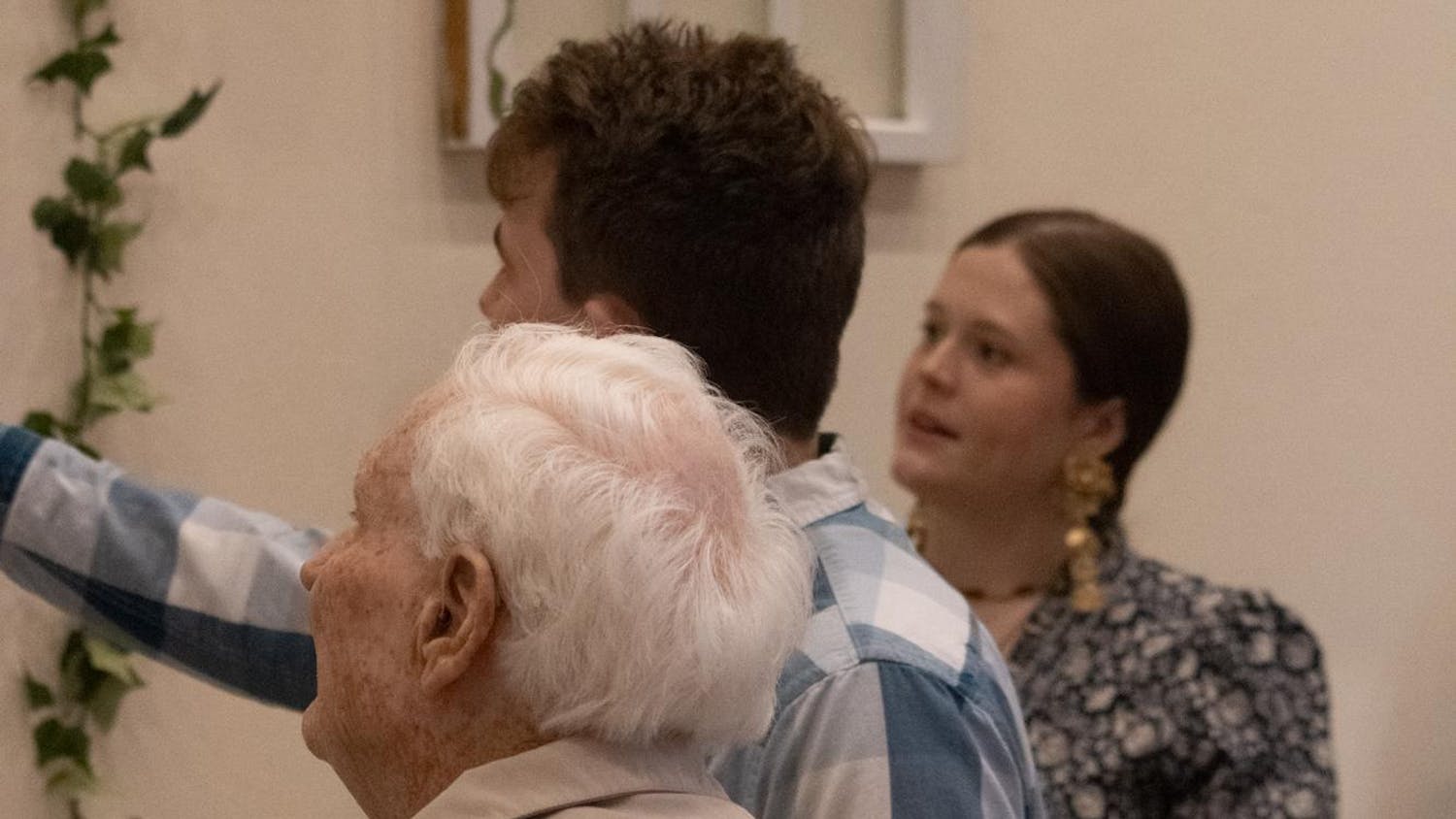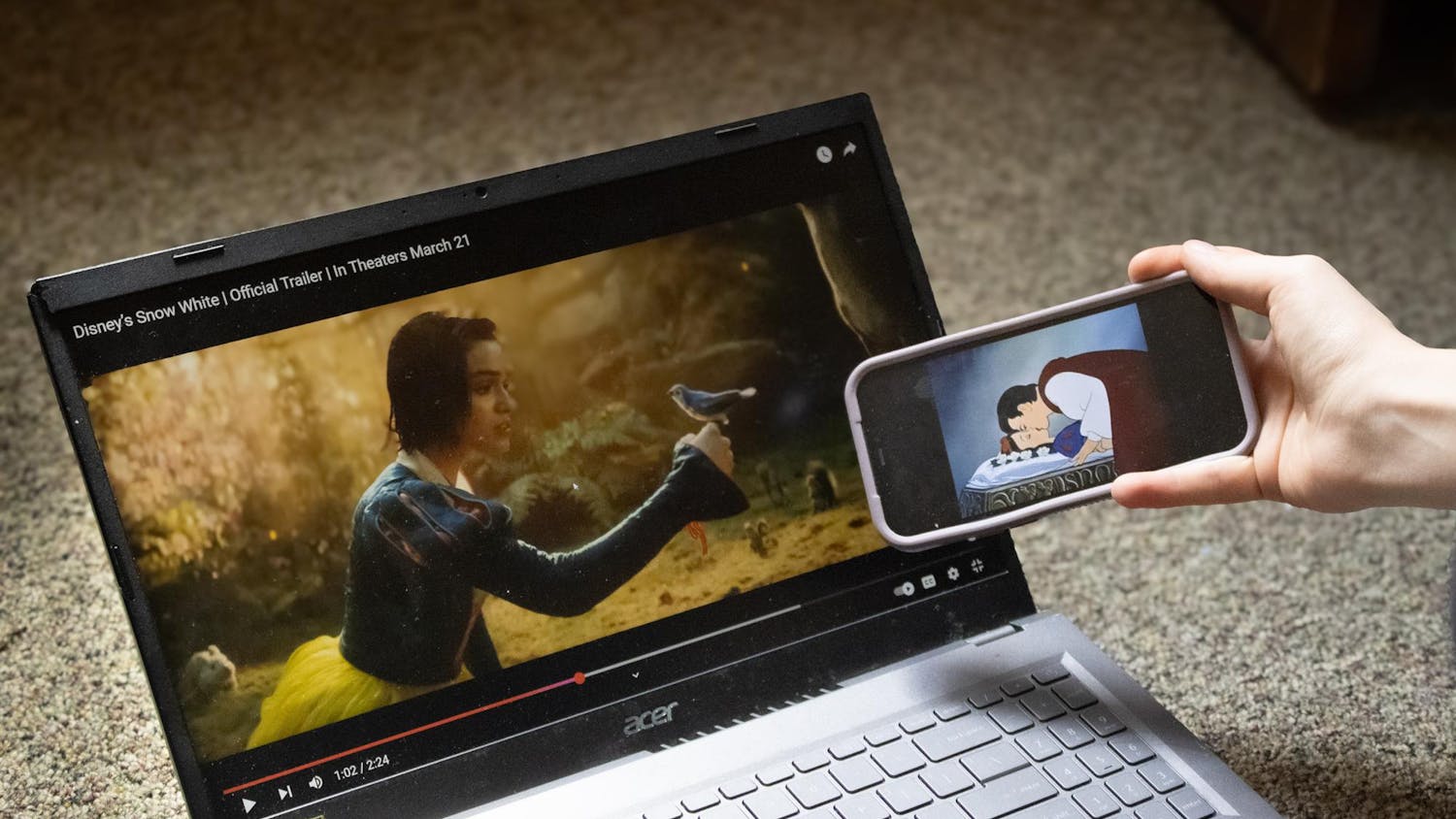Expressive voices and illustrious characters with posh accents flooded Mitchell Theatre on Feb. 20-23. Ten Taylor students embraced creative imagery using their bodies and props as a canvas of expression.
Kate Hamill’s adaptation of Jane Austen’s novel “Sense and Sensibility” came to life at Taylor with successful box office sales, Lydia Koenig, a junior art education major and stage manager, said. Feb. 22 saw an almost full house for both shows, with the evening show packing in 223 attendees.
The two and a half hour play explored the lives of Elinor and Marianne Dashwood as young women navigating the twists and turns of new and passing relationships.
The adaptation presented unique technical challenges, with all actors playing up to four different characters except those portraying the Dashwood sisters, Christina Howard ’14, director, said.
In-between such roles, they often stood behind tall window panes in the blue light, reflected by long, flowing curtains, positioned as “gossips.”
“We talked a lot about making each character distinct so that people could understand what was happening and keep the story (throughout it),” Howard said.
A comedic flair was added to the show as the supporting cast would sometimes become a prop for a scene, holding a tree branch that moved as time passed or transforming into a dog that rushed onto the scene.
Howard was offered the role as director of the play by Tracy Manning, assistant professor of theatre arts and the managing and artistic director of theatre. Manning felt it would be special for a play written for female leads to be directed and designed by five female alums, Howard said.
When casting decisions were being made, Hannah Wylie, a junior theatre education and English education major, said she felt very connected with Marianne’s character, commending her dreams, passions and goals.
“It was like, I’ve got to play this character, and all of her,” she said. “The ways that she's really strong and fantastic, and the ways that she's weak and needs help.”
Jane Austen was an author who told the full experience of what it was to be a woman, Wylie said. Her perspective focused on familial relationships and how those affected life dynamics.
A large part of the story centered around positions of power and status, illustrating how women were restricted in society by their family and ranking, Howard said. The dialogue and interactions explored how characters’ desire for control influenced how they made their own decisions.
“With the sisters, we talked about their love for each other and how selfishness or turning inward can make you blind to other people's needs,” Howard said.
That closeness portrayed on the stage between the two sisters was merely a reflection of the friendship between Wylie and Ris Bland, a senior musical theatre major, in their daily life.
Wylie said that she wanted Bland to be able to land the role of Elinor but hadn’t initially thought they would both get a role as a sister. Wylie and Bland were able to adjust their own dynamics as friends and build a deeper, more familial bond that they drew from relationships with their own siblings.
It was valuable watching a strong character like Elinor explore what grief looks like, Wylie said. Viewers were able to see the world through her eyes and watch her internal dialogue play out as she helped manage the family’s financial burdens and pain of navigating love.
Wylie described the process of playing an expressive character like Marianne as a taxing experience that drained her. Some days she found herself crying on the floor, surrounded by friends after being spent emotionally.
“I had to find within myself the outward expression of emotion that Marian had, and I had to build that up,” she said.
The night before the opening show, Wylie was still standing on Mitchell Theatre’s stage at 12 a.m., searching for that depth of grief that Marianne possessed. On the opening night, she remembered looking out and being able to finally harness those emotions.
Howard had given Wylie one piece of advice when portraying a character who was going through a difficult time in their life—to pray for them. Wylie spent a considerable amount of time praying for women who have grieved the loss of a man like Willoughby.
While the entire weekend included approximately 14 hours of performing in front of an audience, Koenig said that tech weekend dwarfed that time by being over 30 hours long.
“I don't think I left the theatre from the start of tech week until the show started,” Koenig said.
While the story explores grief that is overlaid with romantic love, it also contemplates coming-of-age principles, Wylie said. It gave the audience a taste of stability, healing and renewal.





